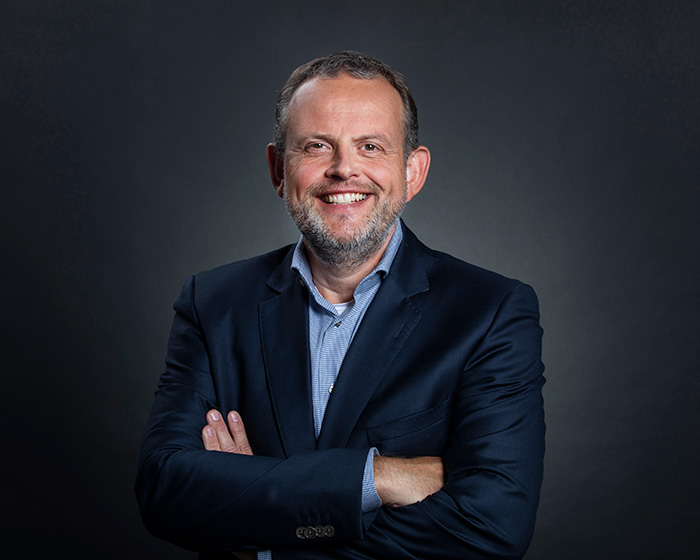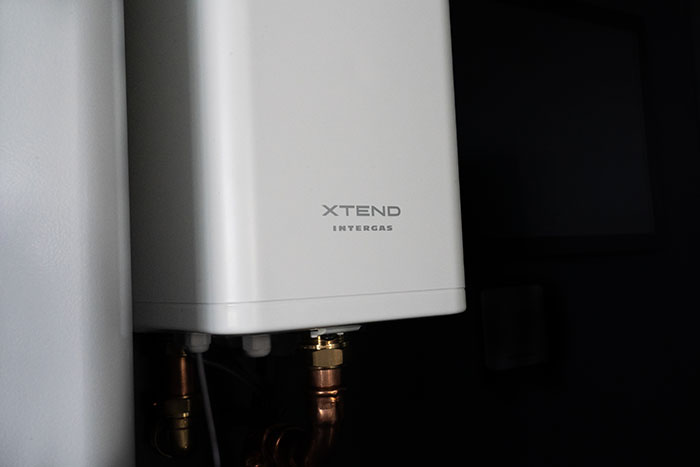Rheem Is Helping Transform Heating in Europe
July 18, 2023


Just ten years ago, the decarbonization of society—the broad-scale phaseout of fossil fuels across all sectors—was seen as nothing more than a technical possibility.
Worthwhile, to mitigate the worst effects of climate change? Certainly.
Achievable? Perhaps.
But likely? Doubtful.
The signing of the Paris Climate Accord by 196 Parties in 2015 elevated decarbonization globally from a vague notion to an attractive opportunity for many industries, including HVAC. And in 2022, the Russian invasion of Ukraine—a geopolitical crisis of historic proportions—made decarbonization in Europe nothing less than an imperative. The European Union (EU), historically dependent on imports of Russian gas to heat homes, fuel cars and generate power, is now determined to accelerate progress toward decarbonization at an unprecedented pace to improve energy security. The EU set a goal in 2019 to be net-zero by 2050, and is now implementing aggressive policies, regulations and interim targets to achieve this goal.
While the push toward decarbonization in Europe today stems primarily from the need for energy security, it is also locking in record protections for the planet at a time when they have never been needed more. Rheem is proud to be at the forefront, driving decarbonization across the European continent through sustainable products, operations, government affairs and investments.
Hybrid Heat Pumps: The Right Solution for Europe
After the Russian invasion, the European Commission swiftly put forth the REPower EU plan for saving energy, producing clean energy and diversifying the EU’s energy supply. The heating sector is an important participant in European decarbonization because it contributes significantly to greenhouse gas emissions. The EU is seeking to reduce more than 60% of building emissions by 2030, and the recognized technology to accomplish this mission is heat pumps. REPower EU established an ambition to double the deployment rate of heat pumps, setting a target of 20 million heat pumps, including hybrids, installed in the EU by 2026 and nearly 60 million by 2030—an incredibly rapid ramp-up of a game-changing solution.
While the European Commission has proposed a range of measures and funding opportunities to facilitate this rollout, it has not specified an overall strategy. To meet the targets, the instinct of many policymakers is to require replacement of gas-fired appliances with all-electric heat pumps. Rheem Europe has played a pivotal role in raising awareness among policymakers of the pitfalls with such an approach. The significant barriers in a wholesale transition to all-electric heat pumps include:
- High cost: All-electric heat pumps are up to ten times as expensive as gas boilers. Unfortunately, that means that most households in Europe can’t afford them without substantial government support.
- Unsuitable housing infrastructure: Ninety percent of the existing European housing stock is not designed to be heated with an all-electric heat pump.
- Inadequate electric grid: Most importantly, the electric grid infrastructure in Europe today is not capable of electrically heating all houses without risking grid collapse. Hundreds of billions of Euros—and decades of work—would be required to upgrade the electrical grid to the levels of capacity and connectivity needed.
Fortunately, there is a far better solution available today to meet Europe’s pressing needs: A heat pump combined with a gas-fired boiler. With this hybrid approach, a small heat pump heats the home the majority of the time. It works together with a gas boiler which provides a backup on the rare days that are extremely cold, and which also has the capacity to deliver domestic hot water year-round. With this solution, we can achieve up to 75% decarbonization of the European heating sector at much lower cost to homeowners and without the need for a massive overhaul of electric grid infrastructure.
When they see the data and facts that drive our recommendation for hybrid solutions, policymakers are highly receptive. In 2022, the national government of the Netherlands announced that as of 2026 it will no longer be permissible to replace a boiler with a single boiler. Instead, a more sustainable solution—preferably a hybrid unit—should be chosen.
 In service of what we see as the right approach for Europe to decarbonize its built environment, we are innovating the world’s best hybrid heat pump products. In December, Rheem company Intergas unveiled the Intergas XTEND—a heat pump together with a high-efficiency combi-boiler, delivering heating and hot tap water with reduced carbon emissions and a much lower environmental impact. We are also making strategic acquisitions to invest in European manufacturing. In early 2022, we acquired DEJONG, a Dutch carbon-neutral company that specializes in manufacturing sustainable stainless-steel tanks for heat pump systems. This year, we acquired MHG Group, a manufacturer and distributor of sophisticated space heating and domestic hot water heating systems in Germany. We will continue making investments to offer critical technologies that accelerate the sustainable transformation of heating in Europe.
In service of what we see as the right approach for Europe to decarbonize its built environment, we are innovating the world’s best hybrid heat pump products. In December, Rheem company Intergas unveiled the Intergas XTEND—a heat pump together with a high-efficiency combi-boiler, delivering heating and hot tap water with reduced carbon emissions and a much lower environmental impact. We are also making strategic acquisitions to invest in European manufacturing. In early 2022, we acquired DEJONG, a Dutch carbon-neutral company that specializes in manufacturing sustainable stainless-steel tanks for heat pump systems. This year, we acquired MHG Group, a manufacturer and distributor of sophisticated space heating and domestic hot water heating systems in Germany. We will continue making investments to offer critical technologies that accelerate the sustainable transformation of heating in Europe.
Leading in Corporate Sustainability
In a world in which bold action on sustainability is becoming increasingly crucial, raising the bar for environmental stewardship within our own operations is also a top priority. Our European operations support Rheem’s global sustainability program, A Greater Degree of Good™, and the ambitious goals we are seeking to achieve globally by our 100th anniversary in 2025. Last year, we hired a dedicated Sustainability Manager to lead special projects across Rheem Europe’s businesses to further embed sustainability in our culture and meaningfully reduce the waste and greenhouse gas emissions associated with each product we produce. We are preparing proactively to comply with the requirements of the Corporate Sustainability Reporting Directive (CSRD), adopted by the EU at the end of 2022, which calls upon companies to report on a wider range of ESG issues and brings non-financial reporting to the same footing as financial reporting. We’re leveraging our reporting for the CSRD as a strategic chance to explore our impacts, risks and opportunities with regard to sustainability, embedding these learnings into our processes and systems going forward. Across Rheem, we seek to serve as a standard-bearer for sustainability, showing other companies what can and should be done to protect the planet for future generations.
It is an exciting time for sustainability in Europe, and Rheem is at the vanguard.







